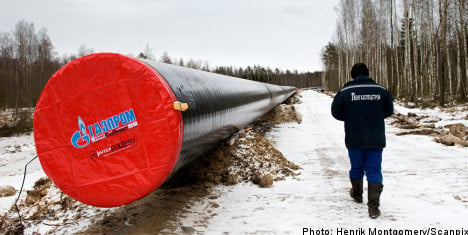“The pipeline is not in Sweden’s interests, especially considering the project’s far-reaching consequences on the environment,” Urban Ahlin and Anders Ygeman, two prominent Social Democrats, said in an open letter published in the Svenska Dagbladet (SvD) newspaper Friday.
“But it is undoubtedly in Russia’s interests,” they wrote, stressing the timing of the decision “suggests that the Swedish government has in a way” given in to Russia’s “expressions of discontent.”
Ahlin, who serves as the Social Democrats’ foreign affairs spokesperson, and Ygeman who chairs the Riksdag’s environmental committee, said approval of the project amounts to “selling out Swedish environmental interests to the benefit of Russian gas”.
Sweden’s approval came two weeks before an EU-Russia summit to take place in Stockholm and resolved what had become a dispute between Stockholm and Moscow.
The Scandinavian country currently holds the rotating EU presidency.
After years of procrastination, Sweden and Finland gave breakthrough approvals to Nord Stream Thursday, allowing the pipeline to pass through their waters in the Baltic Sea, a crucial step for the project destined to supply Europe with Russian gas.
The $7.4 billion Nord Stream project, which is led by Russian state-run energy giant Gazprom in partnership with Germany’s E.On Ruhrgas and BASF-Wintershall, will run under the Baltic Sea to bring gas from Russia to the European Union.
The pipeline will link the Russian city of Vyborg and Greifswald in Germany over a distance of 1,220 kilometres, going under the Baltic Sea and passing through Russian, Finnish, Swedish, Danish and German waters.



 Please whitelist us to continue reading.
Please whitelist us to continue reading.
Member comments